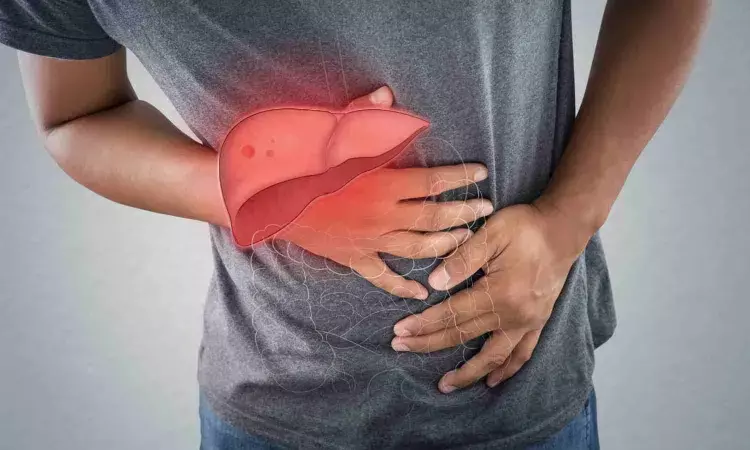- Home
- Medical news & Guidelines
- Anesthesiology
- Cardiology and CTVS
- Critical Care
- Dentistry
- Dermatology
- Diabetes and Endocrinology
- ENT
- Gastroenterology
- Medicine
- Nephrology
- Neurology
- Obstretics-Gynaecology
- Oncology
- Ophthalmology
- Orthopaedics
- Pediatrics-Neonatology
- Psychiatry
- Pulmonology
- Radiology
- Surgery
- Urology
- Laboratory Medicine
- Diet
- Nursing
- Paramedical
- Physiotherapy
- Health news
- Fact Check
- Bone Health Fact Check
- Brain Health Fact Check
- Cancer Related Fact Check
- Child Care Fact Check
- Dental and oral health fact check
- Diabetes and metabolic health fact check
- Diet and Nutrition Fact Check
- Eye and ENT Care Fact Check
- Fitness fact check
- Gut health fact check
- Heart health fact check
- Kidney health fact check
- Medical education fact check
- Men's health fact check
- Respiratory fact check
- Skin and hair care fact check
- Vaccine and Immunization fact check
- Women's health fact check
- AYUSH
- State News
- Andaman and Nicobar Islands
- Andhra Pradesh
- Arunachal Pradesh
- Assam
- Bihar
- Chandigarh
- Chattisgarh
- Dadra and Nagar Haveli
- Daman and Diu
- Delhi
- Goa
- Gujarat
- Haryana
- Himachal Pradesh
- Jammu & Kashmir
- Jharkhand
- Karnataka
- Kerala
- Ladakh
- Lakshadweep
- Madhya Pradesh
- Maharashtra
- Manipur
- Meghalaya
- Mizoram
- Nagaland
- Odisha
- Puducherry
- Punjab
- Rajasthan
- Sikkim
- Tamil Nadu
- Telangana
- Tripura
- Uttar Pradesh
- Uttrakhand
- West Bengal
- Medical Education
- Industry
Daily aspirin can significantly reduce liver fat content in metabolic dysfunction-associated steatotic liver disease: Study

USA: A recent clinical trial revealed that six months of daily low-dose aspirin significantly reduced hepatic fat quantity compared with placebo in patients with metabolic dysfunction-associated steatotic liver disease (MASLD).
The most common chronic liver disease is metabolic dysfunction-associated steatotic liver disease characterized by an increased buildup of fat in the liver due to factors such as obesity and type 2 diabetes.
Such elevated fat poses serious health risks, but the clinical trial published in JAMA and conducted by investigators from Massachusetts General Hospital, a founding member of the Mass General Brigham healthcare system, reveals that daily aspirin can significantly reduce liver fat content.
“Since MASLD is estimated to affect up to a third of U.S. adults, aspirin represents an attractive potential low-cost option to prevent progression to cirrhosis or liver cancer, the most feared complications of MASLD,” said senior author Andrew T. Chan, MD, MPH, a gastroenterologist and chief of the Clinical and Translational Epidemiology Unit at Massachusetts General Hospital.
Chan and his colleagues tested aspirin’s potential because the drug reduces inflammation and affects fat metabolism.
In their phase 2 trial, 80 adults with MASLD were randomized to receive daily low-dose aspirin (81 mg) or placebo for six months.
At the end of the trial, the average change in liver fat content was -6.6% with aspirin versus +3.6% with placebo, indicating that low-dose aspirin reduced the average liver fat content by 10.2% compared with placebo. Low-dose aspirin was found to be safe and well-tolerated.
Aspirin also improved various markers of liver health. “Multiple non-invasive blood and imaging-based tests for liver fat, inflammation, and fibrosis all showed a similar direction of benefit that favored aspirin treatment,” said lead author and Principal Investigator Tracey G. Simon, MD, MPH, a hepatologist in the Division of Gastroenterology at Massachusetts General Hospital. “Together, these data support the potential for aspirin to provide benefits for patients with MASLD.”
References: Tracey G. Simon, MD, MPH1,2,3; Robert M. Wilechansky, MD1,2,4; Stefania Stoyanova, BA4; et al JAMA. 2024;331(11):920-929. doi:10.1001/jama.2024.1215
Dr Kamal Kant Kohli-MBBS, DTCD- a chest specialist with more than 30 years of practice and a flair for writing clinical articles, Dr Kamal Kant Kohli joined Medical Dialogues as a Chief Editor of Medical News. Besides writing articles, as an editor, he proofreads and verifies all the medical content published on Medical Dialogues including those coming from journals, studies,medical conferences,guidelines etc. Email: drkohli@medicaldialogues.in. Contact no. 011-43720751


